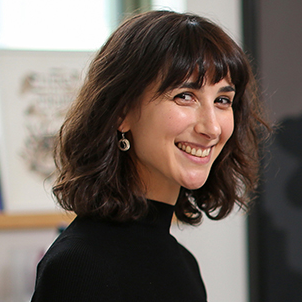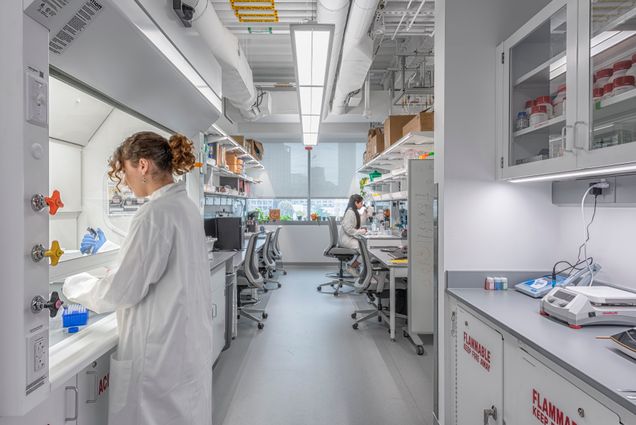By Grace Sferrazza (CAS’26, COM’26)
Assistant Professor of Biology Meg Younger has received a Wellcome Discovery Award from Wellcome, a global charitable foundation supporting science to solve urgent health challenges.

Younger and her collaborators seek to understand how a mosquito’s brain is connected to its sense of smell and how that influences what prey it chooses.
With funding from Wellcome, the Younger lab—in partnership with Gregory Jefferis and Elizabeth Marin of Cambridge University and Wei-Chung Allen Lee of Harvard Medical School—plan to map the brain of the Aedes aegypti mosquito and to visualize it on an interactive online platform.
“What we’re doing is mapping all the neurons and all the synapses and how they connect to one another, so that we can begin to understand the pathways that are involved,” Younger said. “I really love working with other researchers and having an award like this that facilitates that is really awesome, because I think as scientists, we can often do more together than we can do alone.”
Younger and Lee have already generated preliminary data, using an electron microscope to map the insect’s connectome, the neural connections in a brain.
But connectomes are only part of the anatomical picture, Younger said. Her team hopes to turn their preliminary research into usable data by “proofreading, annotating, and analyzing” a detailed image. More experiments are needed to fully understand the inner workings of the mosquito’s mind and its nervous system.

“[Connectomes are] basically like looking at a road map for a city to understand how traffic could move without seeing the cars actually moving around,” said Younger. “If you wanted to understand where congestion happens, you’d still want to be able to see the cars moving, but it would get you a very big part of the way to figuring it out.”
Younger said studying mosquitoes’ sense of smell is not only important to neuroscience but to public health. Mosquitoes transmit diseases that kill over half a million people every year, she said.
She hopes that their work will enable new mosquito repellents to be developed based on their olfactory research, reducing the number of infections and preventable diseases via mosquito bites.
The Wellcome Discovery Award provides funding for research teams across many fields and encourages them to pursue innovative research plans related to understanding human life, health, and wellbeing. The team has received funding for four and a half years to work on the project, according to Younger.
“It’s a project I really love, and it’s really motivating to have gotten funding to move it forward, because I think it’s going to have a big impact,” Younger said. “I think that this is a resource that will be used for decades to come by tons of people.”